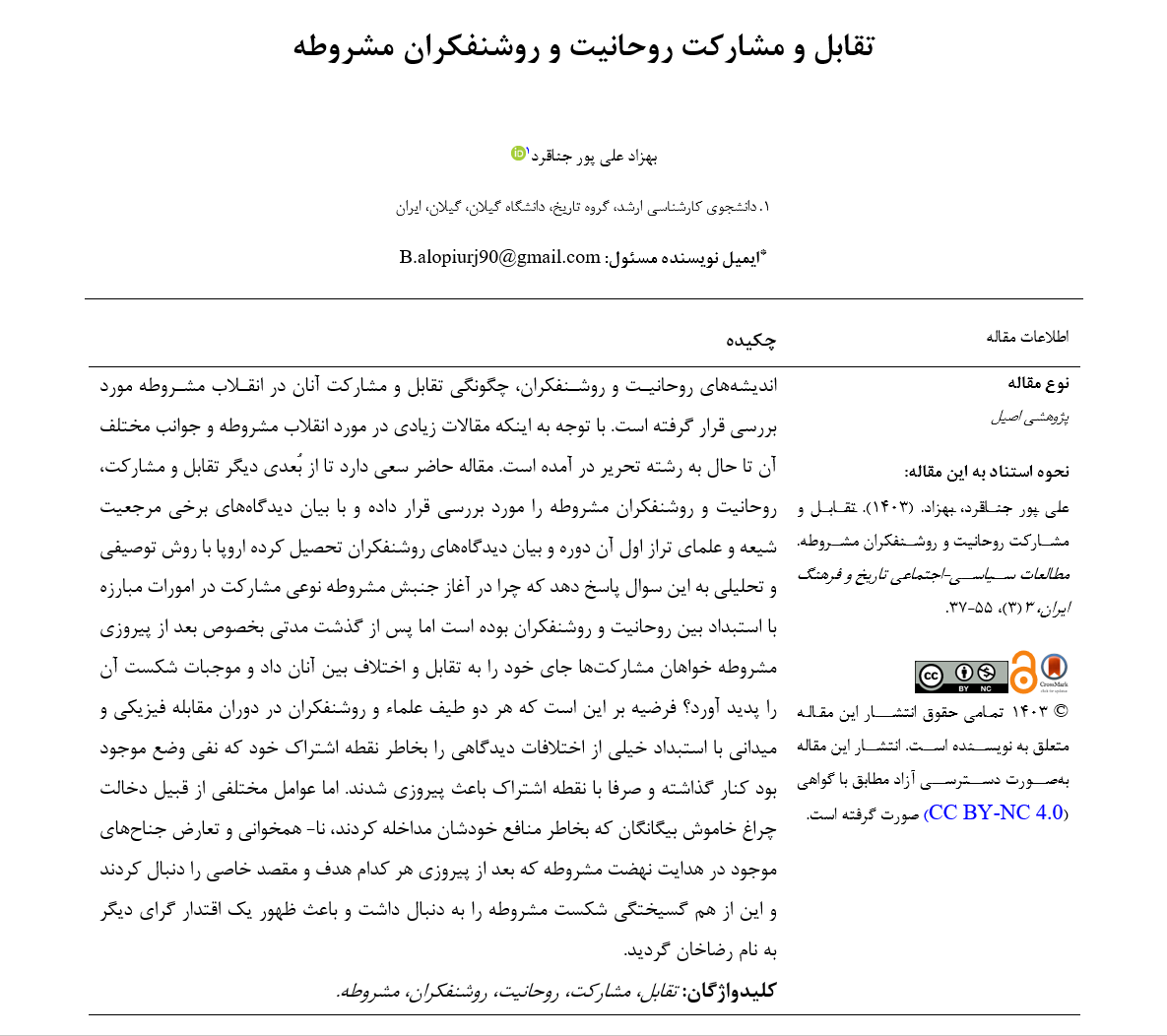Confrontation and Cooperation between the Clergy and Constitutional Intellectuals
Keywords:
confrontation, participation, clergy, intellectuals, constitutionalismAbstract
The ideas of the clergy and intellectuals, as well as the nature of their confrontation and cooperation during the Constitutional Revolution, have been examined. Given that numerous articles have been written on the Constitutional Revolution and its various aspects, the present article seeks to analyze the confrontation and cooperation between the clergy and the constitutional intellectuals from a different perspective. By presenting the views of some Shiite authorities and leading scholars of that period, alongside the perspectives of European-educated intellectuals, this descriptive-analytical study aims to answer the question: why was there initial cooperation between the clergy and intellectuals in the struggle against despotism at the beginning of the Constitutional movement, but after a while, especially after the victory of the constitutionalists, did cooperation give way to confrontation and conflict between them, ultimately leading to its failure? The hypothesis is that both groups, the clergy and the intellectuals, set aside many of their ideological differences during the physical and field struggle against despotism, due to their shared goal of rejecting the status quo. This shared goal was the primary reason for their initial success. However, various factors, such as the silent interference of foreign powers acting in their own interests, and the incompatibility and conflict among the factions leading the Constitutional Revolution—each of which pursued its own specific objectives after the victory—led to the movement's disintegration and ultimately to the rise of another authoritarian figure, Reza Khan.
Downloads







